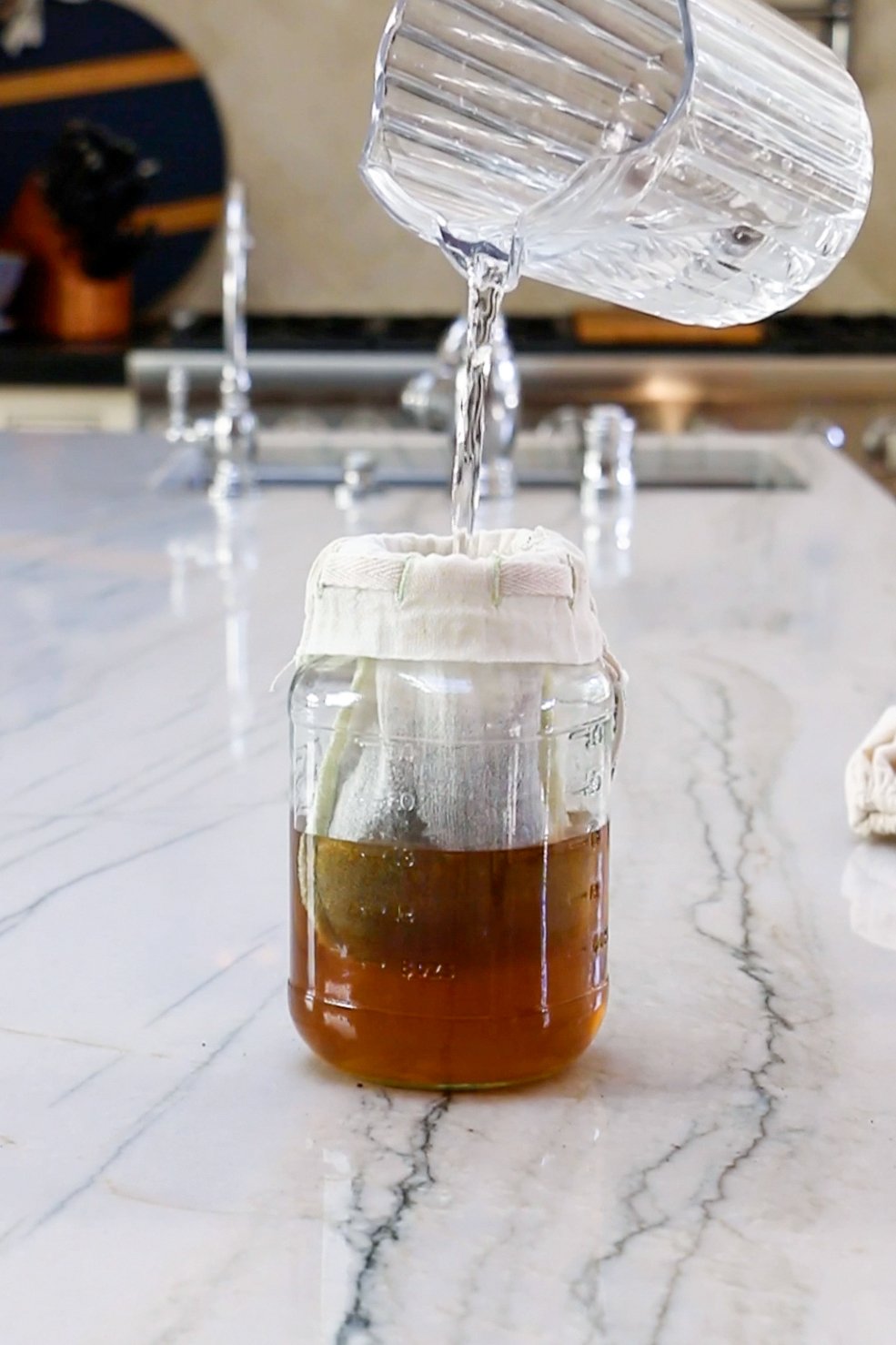A Zero-Waste Guide to College Living
It’s back to school season already, meaning millions of teens and adults are headed off to college. No matter the university you’re headed to or the field you’re studying, there’s always room to bring along a sustainable mindset!
Whether you’re headed off to a new city, preparing for dorm living, or even commuting to a local university, here are some simple ways that you can green up your routine and help prevent unnecessary waste, all while saving time and money.
Low-Waste Dorm Life
Moving into a dorm can be a big adjustment from your home life, especially if it’s the first experience of living on your own. Between getting settled in, going to classes, making new friends, and sharing communal spaces, there’s a lot to be learned about yourself and your habits that ultimately impact the environment.
While the buzz of back to school shopping can be fun and exciting, most “essentials” marketed towards college students aren’t really essential. Before going out to buy a whole new wardrobe, room decor, and school supplies, look at what you already have on hand and actively use. There’s no point in shelling out cash on cute pens, fancy notepads, and 17 different colors of highlighters if you’ll just be taking notes on a laptop or tablet. Similarly, a mountain of new outfits will just take up precious space once you get used to wearing sweats and pjs to lectures everyday. If it’s not something you desperately need, wait a few weeks to get settled and see if you’re still interested in buying it. Most likely, the wave will pass or the trend will fade, and you’ll appreciate the extra money and saved space rather than added clutter. And if you still need the supplies after all, check at local thrift shops to see if they have any items on hand, or with roommates and friends who overbought during the pre-move in sales.
It’s true that dining halls and on-campus eateries have no lack of coffee and tea options to choose from, but the cost of all that joe can start adding up quickly, not to mention all the disposable cups as well. To save money and time waiting in long cafe lines, you can make your own cold brew right in your dorm so it’s ready to go whenever needed. Simply pour ground coffee beans into a Reusable Straining Bag, place it in a mason jar, fill with water, and let it sit overnight. In the morning, you’ll have cold brew ready to go! Then serve heated or over ice in a reusable travel mug, add in milk or creamer, and head off to class (on time and coffee in hand). And if you’re more of a tea drinker, you can use the same method with loose leaf tea to skip the boiling and steep time in the morning, plus the night-before preparation will help keep your sleeping roommates happy.
Since dorms are such a confined space, it’s a great opportunity to see what items you’re using and discarding most, allowing you to replace them with reusable alternatives. For skincare routines, prepackaged face wipes can be quick and convenient, but their single-use nature will add up in cost and waste in just a short period of time. Try switching to a reusable alternative, like Organic Cotton Face Rounds or an Exfoliating Washcloth, as these can be used and reused for years to come. And when they need cleaning, just pop them into the laundry with the rest of your clothes, and they’ll come out clean and ready to go! Other items like paper towels can be replaced with a regular cloth towel, tissues with reusable handkerchiefs, disposable drink cups and cutlery with a to-go mug and silverware from the dining hall (more on that later).
Laundry Room Etiquette
When it comes to doing laundry (possibly for the first time), the laundry room can be an intimidating place, especially if there are other people waiting for open machines. The best thing you can do to make this process as streamlined and simple as possible is to come prepared.
Place small items like socks, underwear, washcloths, and face rounds into a Reusable Laundry Bag before tossing them into the machine. Not only will this prevent them from getting lost in the machine, it will help make transporting and after-cleaning organization a lot easier. As an added bonus, bags made of natural fibers like organic cotton won’t shed microplastic fibers into the wash like synthetic materials will. Similarly, delicate items like sweaters or fancy tops can be washed in a laundry bag to keep them from facing unnecessary wear and tear in the machine. Plus, prepping these in your room beforehand will help save time at a busy laundry room, allowing for speedy removal and an efficient laundry line turnover.
Choosing a laundry detergent that’s environmentally friendly, as well as practical for college life, is another area to consider. The big bargain jugs offered at your campus store or pharmacy are often heavily watered down, contain an array of chemicals and synthetic fragrances, and take up a lot of space in an already tight dorm room. Try looking for a fragrance-free concentrated laundry soap instead, or search your local bulk shop to find options in liquid, powdered, or sheet form, whichever you prefer. Not only can all of these options save you space, but any dried option can easily be ordered online and shipped wherever you are.
Pro tip: Look out for Polyvinyl Alcohol (noted as PVA or PVOH) as an ingredient on any “eco-friendly” detergent pods or sheets, it’s a form of plastic used by many brands that “dissolves” with water, but doesn’t actually biodegrade as natural materials do.
Depending on your school or laundromat, the washers and dryers are most likely low-efficiency machines, meaning they take a lot of energy, time, and water to get your clothes cleaned and dried. To maximize efficiency (as well as save money) be sure to wash full loads at a time rather than half full or only a few items. Remember that overfilling the machine can also prevent your clothes from being cleaned properly, so make sure there’s enough room for things to tumble and move around.
When it comes to drying your clothing, take a look at the climate you’re living in. If you’re in a hotter climate, take advantage of that warm weather to let your clothes partially or fully air dry. A foldable clothes-drying rack is perfect for small dorm & apartment living, just pop it open when you need it, and fold it up to store behind a door or under a bed when unused. If you’re living in a colder climate with harsher winters where air drying isn’t an option, give Wool Dryer Balls a try. Not only will they help dry your clothing faster in a machine (saving you time, energy, and money), but they’ll also help fluff up your textiles, and actually help your pieces last longer by reducing wear and tear! And if you’re looking to freshen up the smell, adding a few drops of Organic Essential Oils to each dryer ball before use will add a light scent, without all the artificial chemicals and fragrances!
Dining Hall Dinners
No matter your living situation, the dining halls and food vendors are going to be an intricate part of college life. With everything from coffee carts to cafeterias, grab & go snacks and sit down dining, there’s always food and drinks available for early morning classes and late night study sessions.
The best way to prevent waste from disposable takeout containers in any case is to BYO vessel! Bring a reusable travel mug to stock up on tea or coffee before a lecture (if you’re not making it at home), plus some places may offer you a discount if you bring your own mug for refilling. If you know you need to grab food while on-the-go, bring your own container to the cafeteria to fill up on grub before heading off to work, along with a stash of utensils kept secure in an Organic Cotton Utensil Wrap or Simple Zipper Pouch. In any case, it’s always helpful to have some containers on hand, so keep an extra box or mug in your backpack just in case!
If you aren’t able to plan ahead or forget your reusables at home, don’t sweat it! At most dining halls and eateries, you can just order your food “for here” on real dishes, and take them with you to your class or study hall. And when you’re done eating, bring the plates, utensils, and cups back for cleaning as usual. If you have the time, take a break from all the studying and work to just eat at the cafeteria or eatery in a no-rush environment, and enjoy yourself.
While being offered an almost unlimited selection of food can be exciting at first, especially with the monopoly money-esque nature of prepaid meal plans, it can be easy to fill up with more than you can handle. To prevent platefuls of uneaten food from going to waste, try grabbing a few bits at a time for your meal rather than loading up on everything at once. If you’re still interested in going back after you’ve eaten what’s on your plate, absolutely go for it! And if you’ve got leftovers, just pop them into your trusty reusable container from your bag (see, it did come in handy!), and bring the leftovers home for another meal.
Grocery Tips & Tricks
Even though dining hall food is quick and convenient, the repetition of eating the same offerings everyday can get stale after a while. And if you’re craving a home cooked meal or have a craving not offered at the school, head to your local market to grab everything you need.
When shopping on a budget, it can be easy to get sucked in by bulk packaged options, discounted deals, and other offerings enticing you to buy more food than you need. To avoid overshopping and the eventual food waste, it's best to set realistic expectations for your cooking habits and storage options. Make a list of items you need before you leave, and stick to the list once you get to the store, and be sure to bring along a reusable tote bag to carry all your groceries home.
If it’s your first time grocery shopping, try to only buy the minimum quantities of items that you need for your cooking endeavors, especially with perishable goods like produce & dairy. Don’t buy a 5 pound bag of carrots just because it’s a good deal, stick to the loose 1 or 2 carrots that your recipe calls for. It may seem more expensive per item, but you’ll actually be saving money, especially when you find those unused carrots in a tiny mini fridge a month later and have to throw them out. Once you’ve gotten used to cooking more frequently and know which items you will and won’t be using often, then you can branch out and start buying larger quantities at a time.
Speaking of produce, the best way to get the most of your fruits and veggies is to buy them without plastic packaging and storing them properly! Keeping any fruit or vegetable in plastic produce bags will actually make them rot faster, as the ethylene gas naturally produced by produce will be trapped inside, speeding up the decay. Switch to using Organic Cotton Mesh & Muslin Produce Bags instead, as these breathable cloth options will allow the ethylene gas to escape, keeping your fruit & veg fresher and crisper for longer! As an added bonus, they can be used for shopping as well as storage.
Learn more about the proper way to keep your fruits and veggies freshest with our produce storage guide!
Get Involved
One of the perks of campus life and college communities is all of the great organizations to get involved with outside of classes! Most schools have clubs for a huge variety of interests, from LGBTQIA+ communities, intramural sports teams, language & culture clubs, and special-interest advocacy groups. And if you don’t happen to find a preexisting club to fit your interests, gather up some friends and start your own!
Joining an environmental advocacy club is a great way to meet new people while working to bring sustainable changes to the campus and local community. You can meet with the school administration to discuss any changes that you’d like to bring to the campus, whether it’s implementing better recycling or composting options, setting up a community garden space for students, or proposing a donation partnership with the campus eateries and local soup kitchens for uneaten food. It’s also a great chance to get involved with the broader city community, whether it be organizing an open-to-the-public river, beach, or park cleanup, volunteering alongside locals schools and after-school programs, or raising awareness for nearby environmental issues.
Outside of clubs, you can look to campus or dorm sponsored events as a way to meet new people who share similar interests or are new to the discussion. Suggesting activities to the student-staff members is a great way to get your interests out there, while providing a fun way to meet new neighbors and friends! Speak to your RA about hosting a clothing swap or yard “sale” for your dorm floor or building. It’s a great way to get rid of clutter without throwing it out, plus you’ll be able to snag some great finds and prevent usable items from going to waste. Other ideas include upcycled crafting and collage making, a fun and lighthearted powerpoint night, or a tie dye workshop to revamp older clothing. Whatever the idea, make your voice heard and enjoy the perks of close-knit community living!








